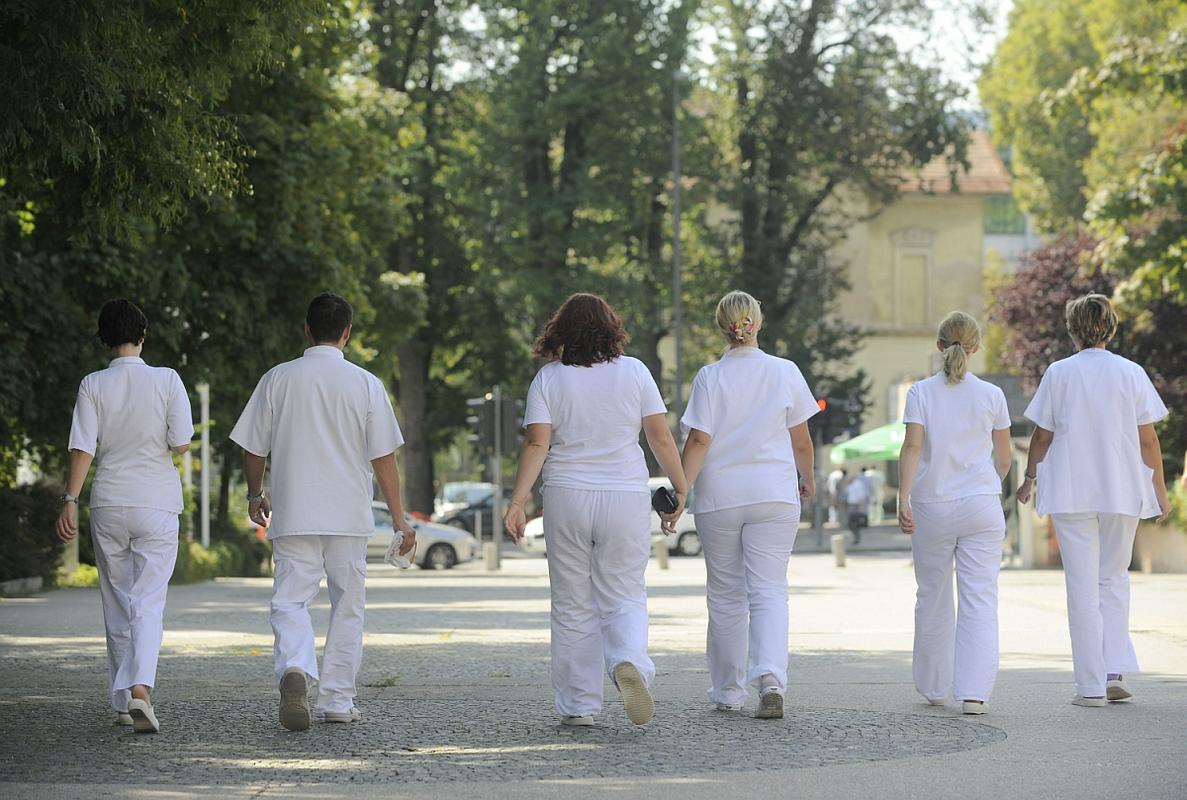
management boards of medical institutions to retire 300 doctors eligible for retirement and employ almost 200 jobless young doctors.
“We can issue a recommendation, but it is up to the managers to decide. We do not have extreme measures in mind – the process should be selective, since some of our older colleagues are so burnt out that they only go to work to earn money, whereas others are still true toilers. The balance should
lean towards the young, who will otherwise leave Slovenia,” says Andrej Možina, the president of the Medical Chamber of Slovenia, which will most probably be asked to issue about 120-140 letters of recommendations – which the doctors need when seeking work abroad – by the end of the year.
Eligible for retirement 15 years ago, but still at work
The Chamber doesn’t have data on the actual number of doctors who have gone abroad, but they point out the case of a doctor who has been eligible for retirement for a record 15-year period now – since 1998 – but is still employed. There are currently 304 doctors in Slovenia who have already met all the criteria for retirement, and an additional 85 are due to join them next year.
Paradox: unemployment and shortage of doctors
Medical organizations have warned of a paradox, with Slovenia having 188 doctors registered as unemployed by the Employment Service, and another 540 of those who are candidates for medical specialization. In their opinion, this is fictitious unemployment, since according to the data collected by Eurostat, Slovenia is in the bottom third of EU member countries in terms of the number of doctors per capita. “Slovenia is 1,000 doctors short of reaching the European average,” points out
Možina.
In addition to the fact it costs the country about 400-450,000 euros to educate a single doctor, including the cost of specialization, there will be significant long-term negative effects on the medical system, which will come under increased pressure in the future due to the aging of the population.
“If 100 doctors leave Slovenia, the country will throw away 20 million euros,” estimates Konrad Kuštrin, the president of FIDES, the trade union representing Slovenian doctors and dentists. This is why the union plans to use the coming weeks to show the politicians that they expect solutions from them, and the latter should be implemented in such a way that “the patients are not going to suffer from the effects”. Kuštrin refused to elaborate, but both the Medical Society and the Chamber noted that they had sent a report with suggestions on how to improve the conditions in the Slovenian health system to the minister of health, Tomaž Gantar. They’re still waiting fora response. “Decisions aren’t simple, but we need them,” adds Možina.

































































